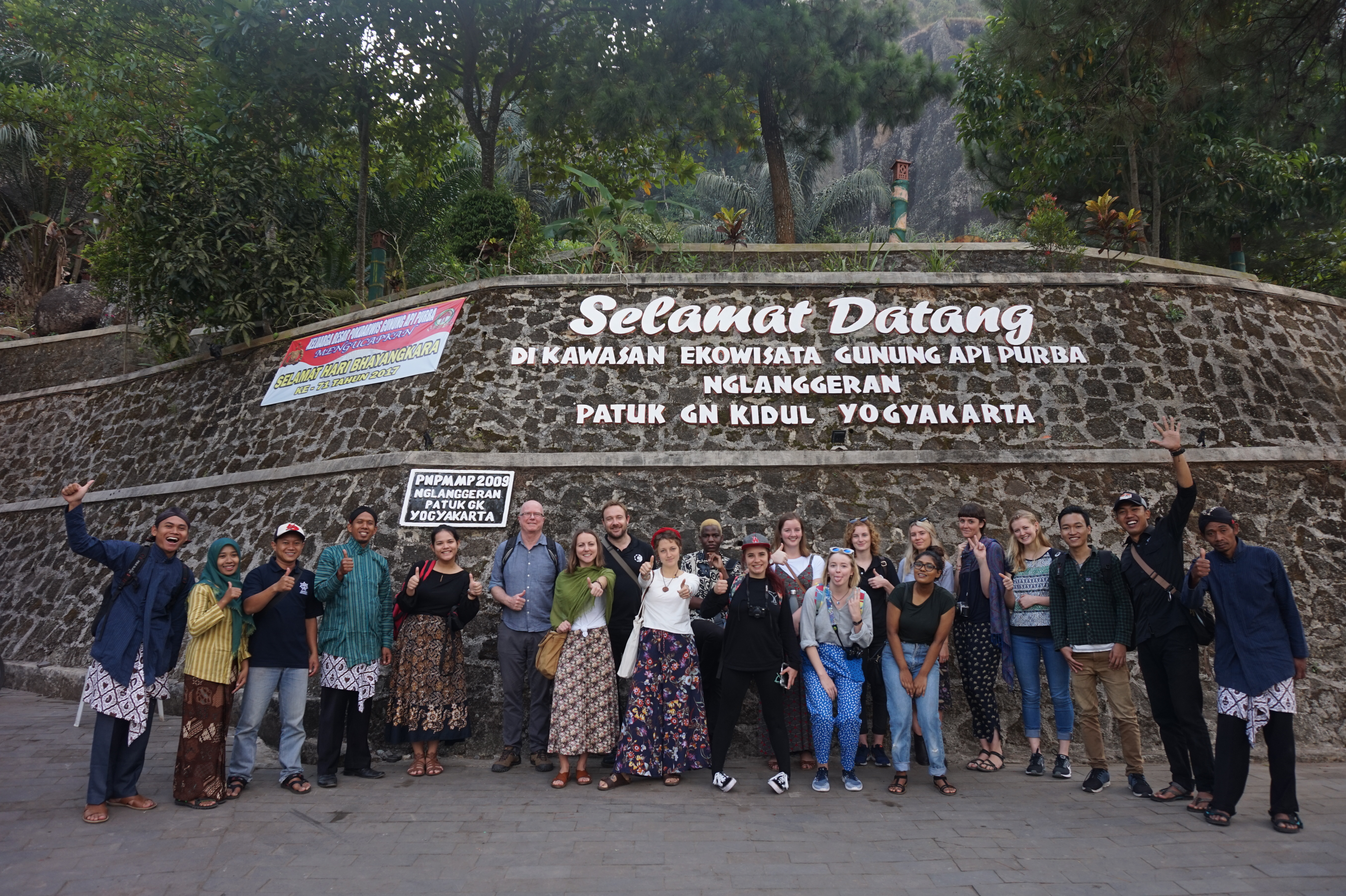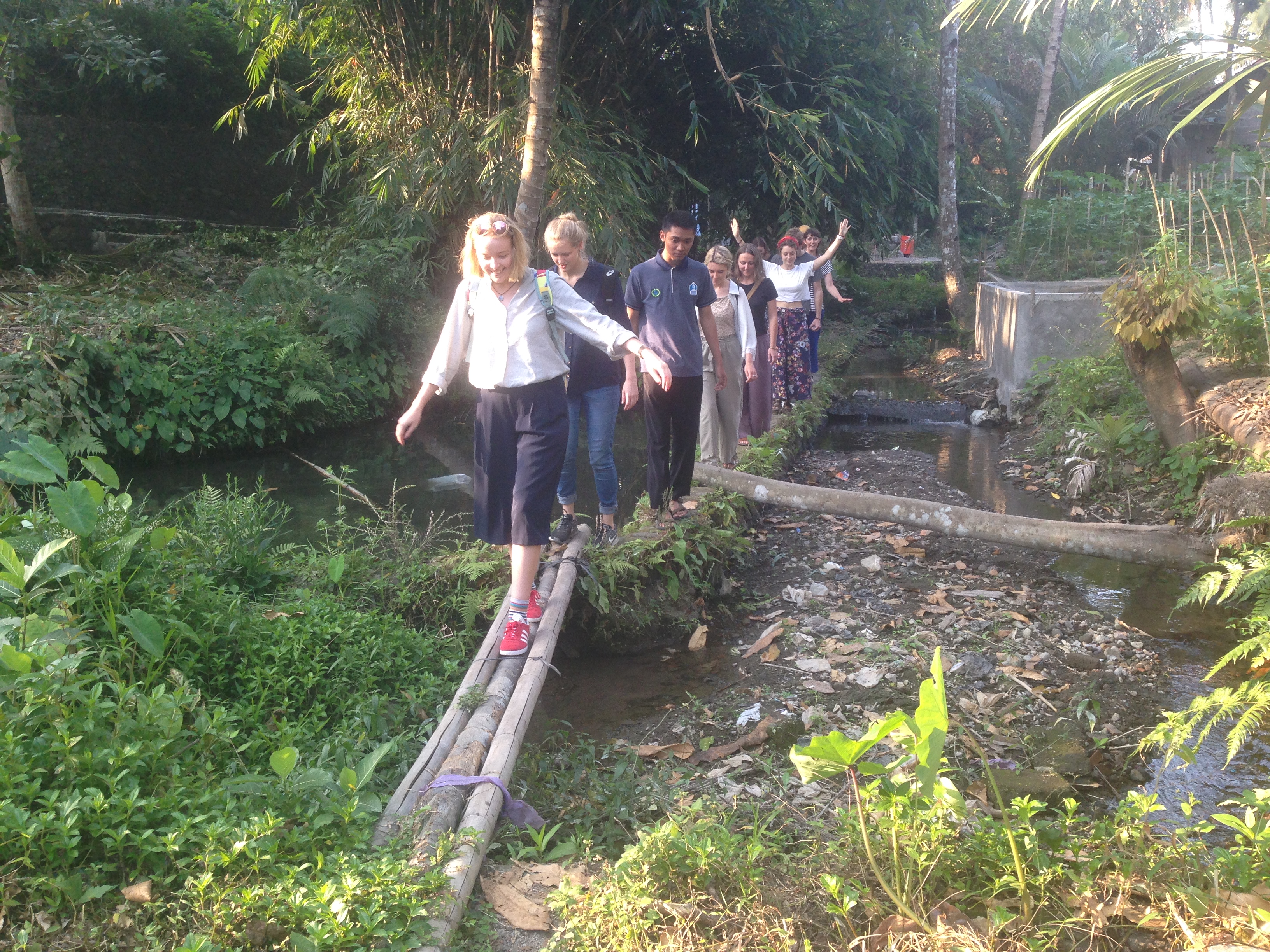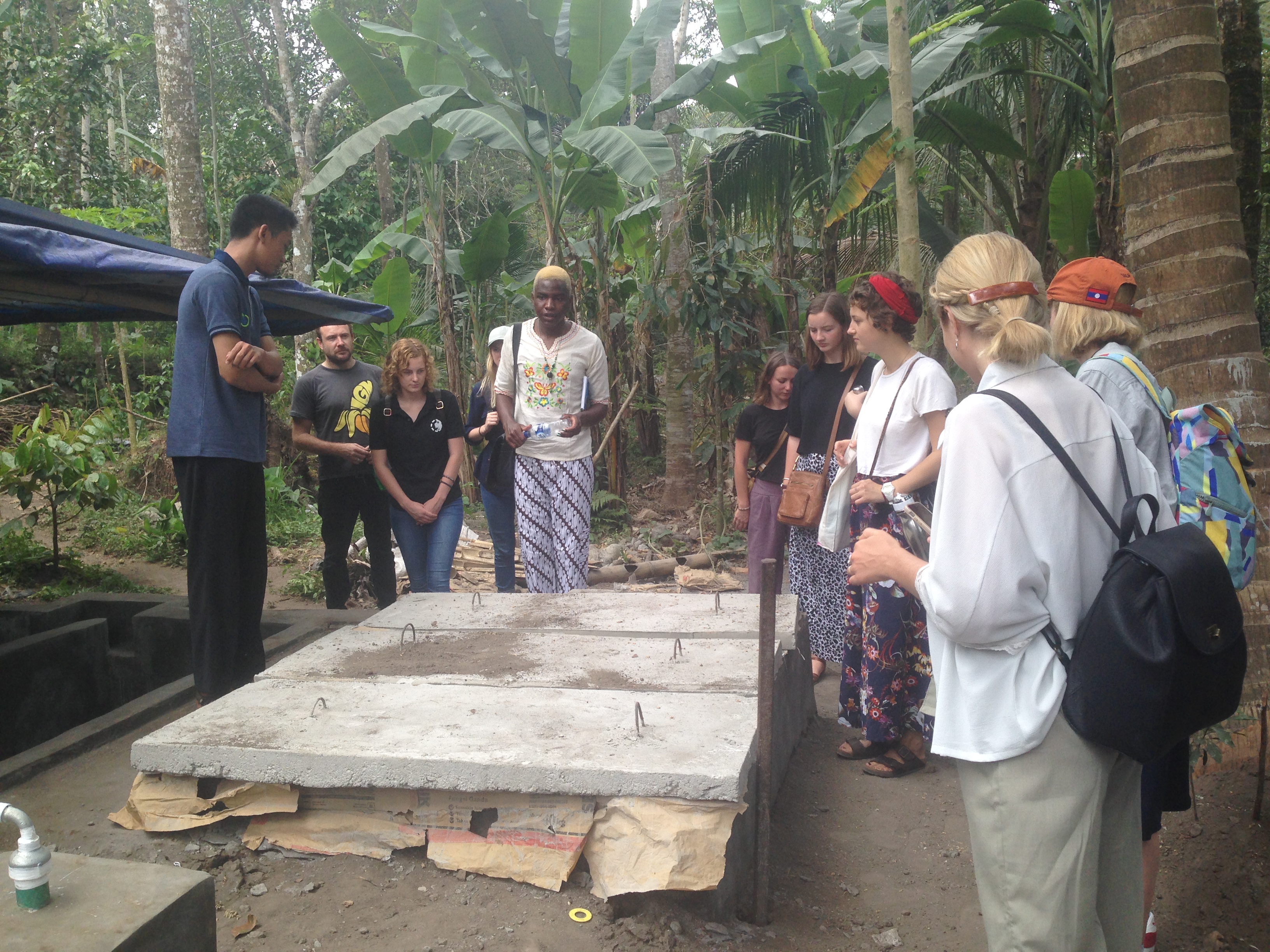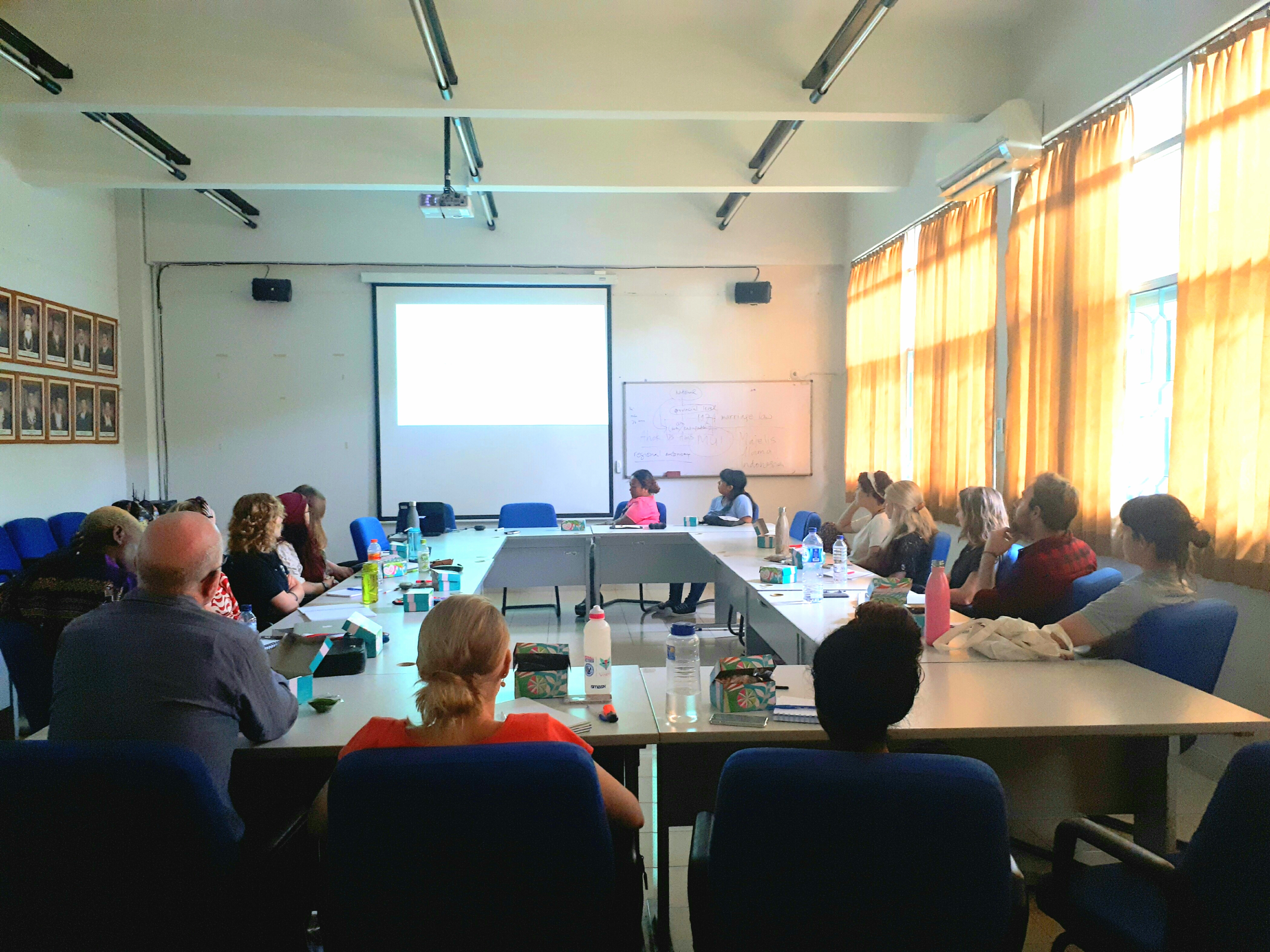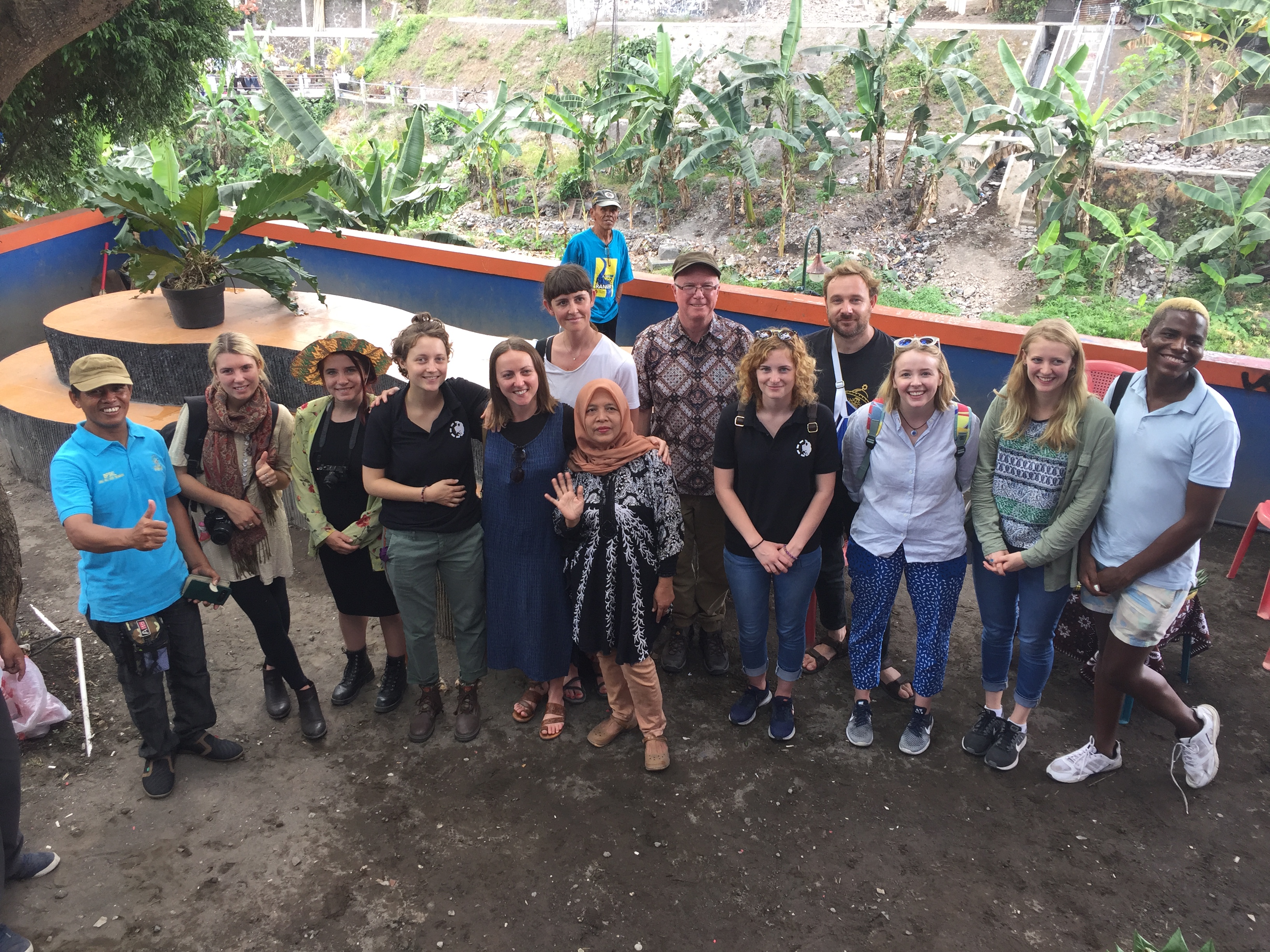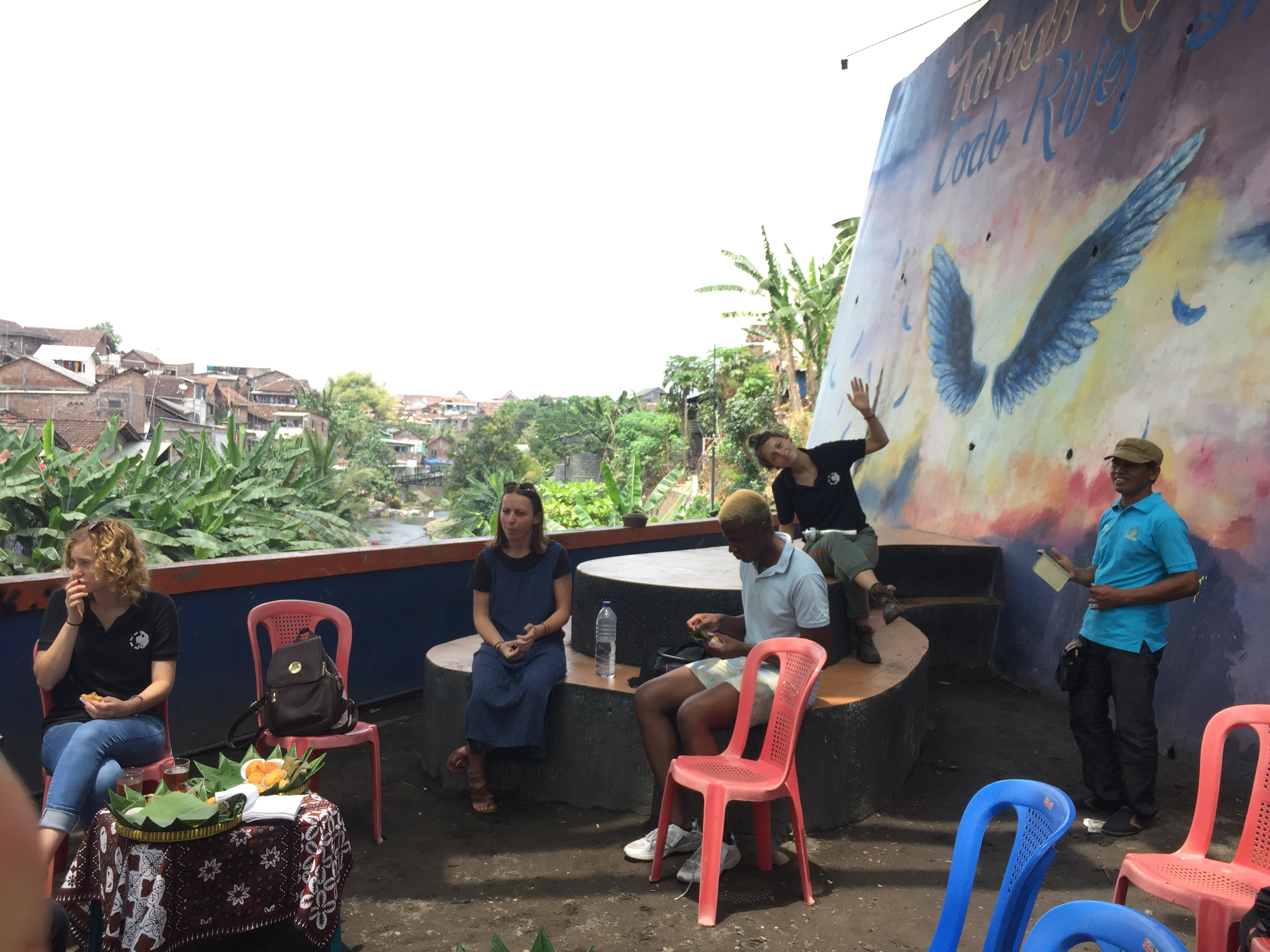ACICIS’ Development Studies Immersion Program Semester 45 (Aug 2017) welcomed 12 students from 6 ACICIS member universities – UNSW Australia, Murdoch University, Griffith University, The University of Adelaide, Monash University and RMIT University.
For the 6-week academic component, the students studied Indonesian language at the Indonesian Language and Culture Learning Service (INCULS) at Universitas Gadjah Mada (UGM), alongside a seminar series and case study visits every Friday. The topics that were covered in the seminars and visits included: community development, gender, public health, waste management, renewable energy, and housing.
For the community development topic, we invited Ms Valentina S Wijiyati from Satu Nama to share her knowledge on community development. Ms Wiji talked about the best practices that organisations such as Satu Nama implement to approach and empower the communities, with an emphasis on sustainability. To see it in practice, we visited the Desa Wisata Nglanggeran, a community-based sustainable tourism in the Gunung Kidul Regency. We talked with the Sustainable Tourism team of Nglanggeran, who then brought us to visit an organic cacao farmer and the Women’s Group that formed a local chocolate production business.
We also collaborated with the Rumah Energi team for our “Renewable Energy” topic, who were implementing the Biogas Rumah project in Klaten, Central Java. The Indonesian Domestic Biogas Programme (IDBP) is better known as the BIRU programme; an acronym of Biogas Rumah, or ‘bio-gas for the home’. BIRU aims to promote the use of biodigesters as a local, sustainable energy source by developing the market while working towards the development of a commercial, market-oriented sector, leading to the creation of jobs. After a seminar on the application of renewable energy initiatives in the community and the work that they do, BIRU took us to visit several of their users in the communities. We saw how substituting conventional gas with biogas, the community could not only save a lot of expenses, but also gain a lot of other advantages such as production of duckweed, organic fertilisers, among others.
For the gender topic, we welcomed two experts in the field: Dr Suzanna Eddyono from Universitas Gadjah Mada and Ms Inna Hudaya, the founder of Samsara. As a lecturer at the Social Development Studies Centre, Dr Suzanna gave us an introduction to gender from development perspectives; looking at challenges and progress. Ms Inna complemented the seminar with an insight into the sexual and reproductive health – including maternal health – from an NGO lens. We then visited the Indonesian Planned Parenthood Association – Special Region of Yogyakarta (PKBI DIY) to look at gender empowerment and sexual and reproductive health efforts in Yogyakarta. The visit to PKBI DIY also complemented the Public Health Seminar that was delivered by the Director of the Center for Tropical Medicine at Gadjah Mada University.
This semester, we also looked at two new interesting topics: waste management and housing issues. We had the pleasure to learn about waste management community projects in Yogyakarta from Dr Widodo Brontowiyono from Universitas Islam Indonesia. Dr Widodo wrote a journal article for Monash University titled “The Role of Community Solid Waste Management in Achieving a Sustainable Final Disposal Site, Yogyakarta”, and he shared with us the findings of his research and experience in the field.
For the housing seminar, we invited Ms Dwi Agustanti from Habitat for Humanity Yogyakarta, an organisation that focuses on addressing the issue of poverty and humanitarian response by building simple, decent and affordable housing. Habitat for Humanity started in Indonesia in 1997 and currently works in Jakarta, Surabaya, Yogyakarta, and Batam. Its largest project was the rebuilding after the December 2004 Indian Ocean tsunami, where they assisted with more than 8,000 families. To learn further about waste management and housing, we were very fortunate to be welcomed by the Code River Community once again. We walked along the Code River, that is situated right in the heart of Yogyakarta. The Code River community initiated programs to be the pioneer and leading example of waste management, housing, and disaster risk management at the community level.
Upon finishing their 6-week academic period, the students began their “development placement” at local and international organisations in Yogyakarta:
Brianna Kerr (UNSW Australia) – Jesuit Refugee Service
Tashinga Musingarabwe (UNSW Australia) – Yayasan Vesta
Lilian Frame (UNSW Australia) – Yayasan Sheep Indonesia
Christopher Matthews (Murdoch University) – Werkudara
Saphron Stapleton (Murdoch University) – Arbeiter-Samariter-Bund Indonesia
Georga Baldock (Murdoch University) – Rumah Inspirasi Jogja
Prudence Bansemer (Murdoch University) – ViaVia Travel Yogyakarta
Ziana Diggles (Griffth University) – Indonesian Planned Parenthood Association Yogya (PKBI DIY)
Olivia Hill (The University of Adelaide) – Indonesian Planned Parenthood Association Yogya (PKBI DIY)
Rivanthi Loganathan (The University of Adelaide) – Yayasan Satu Nama – Village and Community Empowerment Division
Rebekah Baynard-Smith (Monash University) – Yayasan Sheep Indonesia
Bethani King (RMIT University) – Center for Orangutan Protection
Best of luck to those students completed their placements.
See here for more information about the Development Studies Immersion Program (DSIP).
